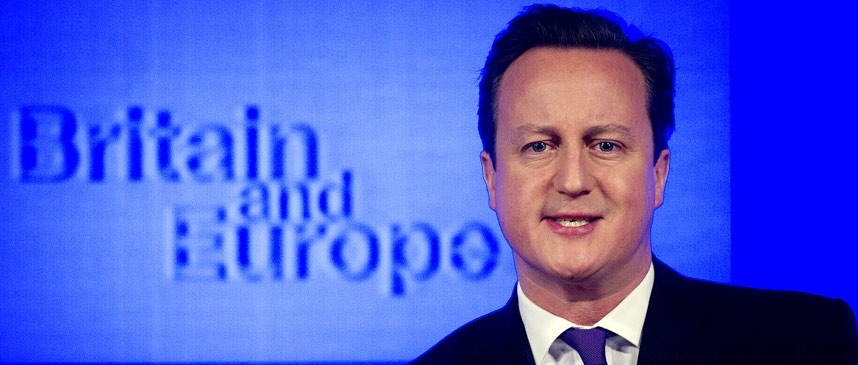
Is David Cameron Margaret Thatcher’s heir on Europe?
Not at all. David Cameron sees the EU very differently to Margaret Thatcher. For a start, when Thatcher was prime minister she was strongly opposed to referendums on the EU. She attacked the Labour government’s decision to call an in-out referendum in 1975, telling Parliament that "the late Lord Attlee was right when he said that the referendum was a device of dictators and demagogues". David Cameron thinks differently and wants one in 2017 (though doubtless he would argue that the EU’s legitimacy in the UK is now so low that only a popular vote can restore it).
Another difference is that Thatcher began as a passionate pro-European who became a virulent eurosceptic. Cameron, by contrast, has always been a moderate sceptic, and never very interested in the EU.
In 1985 Thatcher backed the plans of Commission President Jacques Delors for a European single market. She also helped to realise those plans by approving the Single European Act, which removed national vetoes on single market rules. As a result the EU was relaunched and revived around the single market programme.
Only in 1988 did Thatcher turn against the EU, because Delors pushed for a social dimension to EU policy, and for monetary union – both of which were anathema to her. After losing office in 1990, her attitudes towards the EU hardened. She became a totem for the Conservative Party’s increasingly powerful eurosceptic right wing, encouraging it to believe that Britain’s future lay in the ‘Anglosphere’ rather than the EU.
Cameron understands how Britain’s diplomatic clout and economic strength gain from EU membership, in all sorts of ways. But because many Conservatives prefer to believe in simpler, Thatcherite truths, Cameron now finds it almost impossible to control his party. Thatcher’s legacy has poisoned Cameron’s inheritance.
(Written for Carnegie’s Strategic Europe blog)
